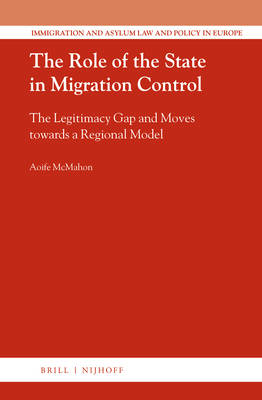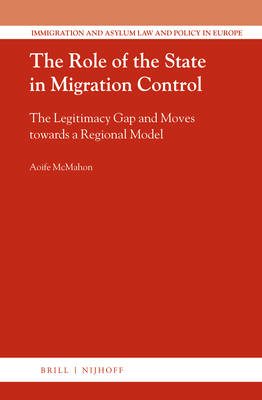
- Afhalen na 1 uur in een winkel met voorraad
- Gratis thuislevering in België vanaf € 30
- Ruim aanbod met 7 miljoen producten
- Afhalen na 1 uur in een winkel met voorraad
- Gratis thuislevering in België vanaf € 30
- Ruim aanbod met 7 miljoen producten
Zoeken
The Role of the State in Migration Control
The Legitimacy Gap and Moves Towards a Regional Model
Aoife McMahon
€ 146,64
+ 293 punten
Omschrijving
This research questions the seemingly ossified premise that states have an absolute discretion to control international migration. Applying Max Weber's theories of legitimacy, it determines that while states have certain traditionally legitimate functions, migration control, as distinct from the determination of citizenship, is not one such function. Measures of migration control must thus be justified on a rational-legal basis, that is, on a minimal evidential basis.
Acknowledging the many obstacles states face in carrying out this legitimising exercise, it is suggested that a supranational approach at the regional level is the most sustainable long-term model, with an ultimate aim of achieving inter-regional cooperation on migration management on the basis of equality between regions.
Acknowledging the many obstacles states face in carrying out this legitimising exercise, it is suggested that a supranational approach at the regional level is the most sustainable long-term model, with an ultimate aim of achieving inter-regional cooperation on migration management on the basis of equality between regions.
Specificaties
Betrokkenen
- Auteur(s):
- Uitgeverij:
Inhoud
- Aantal bladzijden:
- 320
- Taal:
- Engels
- Reeks:
- Reeksnummer:
- nr. 40
Eigenschappen
- Productcode (EAN):
- 9789004330047
- Verschijningsdatum:
- 1/12/2016
- Uitvoering:
- Hardcover
- Formaat:
- Genaaid
- Afmetingen:
- 157 mm x 236 mm
- Gewicht:
- 612 g

Alleen bij Standaard Boekhandel
+ 293 punten op je klantenkaart van Standaard Boekhandel
Beoordelingen
We publiceren alleen reviews die voldoen aan de voorwaarden voor reviews. Bekijk onze voorwaarden voor reviews.











